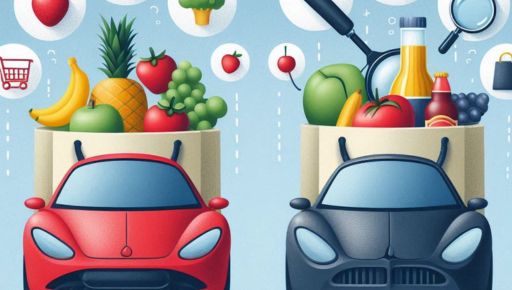Mystery shopping has long been a key tool for companies seeking to improve customer experience, assess service quality, and gain insights into operations. While automotive and grocery sectors may seem worlds apart, their mystery shopping programs share notable similarities. Both industries use this method to fine-tune their service delivery, ensure quality, and create a seamless customer experience. Here’s an exploration of the commonalities between automotive mystery shopping and grocery mystery shopping that highlight how each benefits from this strategy.
Customer Experience Assessment
One of the primary goals in both automotive and grocery mystery shopping is to gauge customer satisfaction. Mystery shoppers provide feedback on how welcoming, attentive, and helpful the staff is during interactions. In automotive dealerships, shoppers might pose as potential car buyers to assess how knowledgeable and friendly the sales team is. Similarly, in grocery stores, mystery shoppers assess customer service at checkout counters, customer assistance within aisles, and cleanliness of the environment. Both industries rely heavily on first impressions and personalized customer care, making it essential to assess these areas for improvement.
Compliance and Operational Standards
Both automotive and grocery businesses require strict adherence to industry standards and internal protocols. In automotive mystery shopping, evaluators observe how well dealerships adhere to sales processes, pricing transparency, and after-sales support. They also look for compliance with brand guidelines, like uniformity of product displays and adherence to brand messaging. Grocery mystery shoppers, on the other hand, monitor factors like shelf stocking, freshness of produce, and compliance with food safety standards. These shoppers also check if discounts are accurately applied and whether promotional displays are set up correctly. In both cases, mystery shopping helps ensure that employees are meeting brand standards and that customers receive a consistent experience.
Product Knowledge Evaluation
Another similarity between automotive and grocery mystery shopping is the focus on product knowledge. In the automotive world, mystery shoppers test the salesperson’s ability to communicate details about car models, features, financing options, and maintenance packages. A knowledgeable salesperson adds value to the customer experience, making this assessment crucial. Grocery mystery shopping may involve testing employees on their knowledge of product locations, dietary options, and special promotions. For instance, if a customer inquires about gluten-free options, a grocery employee’s response can make or break the experience. In both settings, mystery shopping evaluates how effectively employees convey information to customers, which is key for fostering trust and loyalty.
Service Speed and Efficiency
Efficiency and timely service are important in both industries, and mystery shopping serves as a way to gauge these factors. In automotive dealerships, mystery shoppers evaluate the time it takes for a representative to approach them and how long the consultation process lasts. They assess how quickly service appointments are handled and the efficiency of payment processes. In grocery stores, mystery shoppers assess the speed of checkout lines, wait times for customer assistance, and efficiency in managing stocked products. Both sectors rely on streamlined service to ensure customers leave satisfied, making speed and efficiency critical areas of focus.
Feedback for Improvement
Feedback loops are vital in mystery shopping programs across both industries. The feedback mystery shoppers provide helps automotive and grocery managers identify strengths and areas needing improvement. Automotive dealerships, for instance, can adjust their sales tactics, enhance after-sales service, and refine showroom environments based on this input. Grocery stores can benefit from shopper feedback by improving product displays, cleanliness, and customer service training. Continuous feedback enables both industries to stay competitive, respond to customer needs, and uphold quality standards.
Conclusion
In summary, although the products and service environments differ, automotive and grocery mystery shopping share similar objectives in enhancing customer experience, ensuring compliance, assessing product knowledge, and promoting efficiency. Mystery shopping provides both industries with a clear snapshot of their operations from the customer’s perspective, allowing them to make meaningful improvements. Whether it’s selecting a car or choosing groceries, customers expect high service standards, and mystery shopping is instrumental in meeting and exceeding these expectations.

